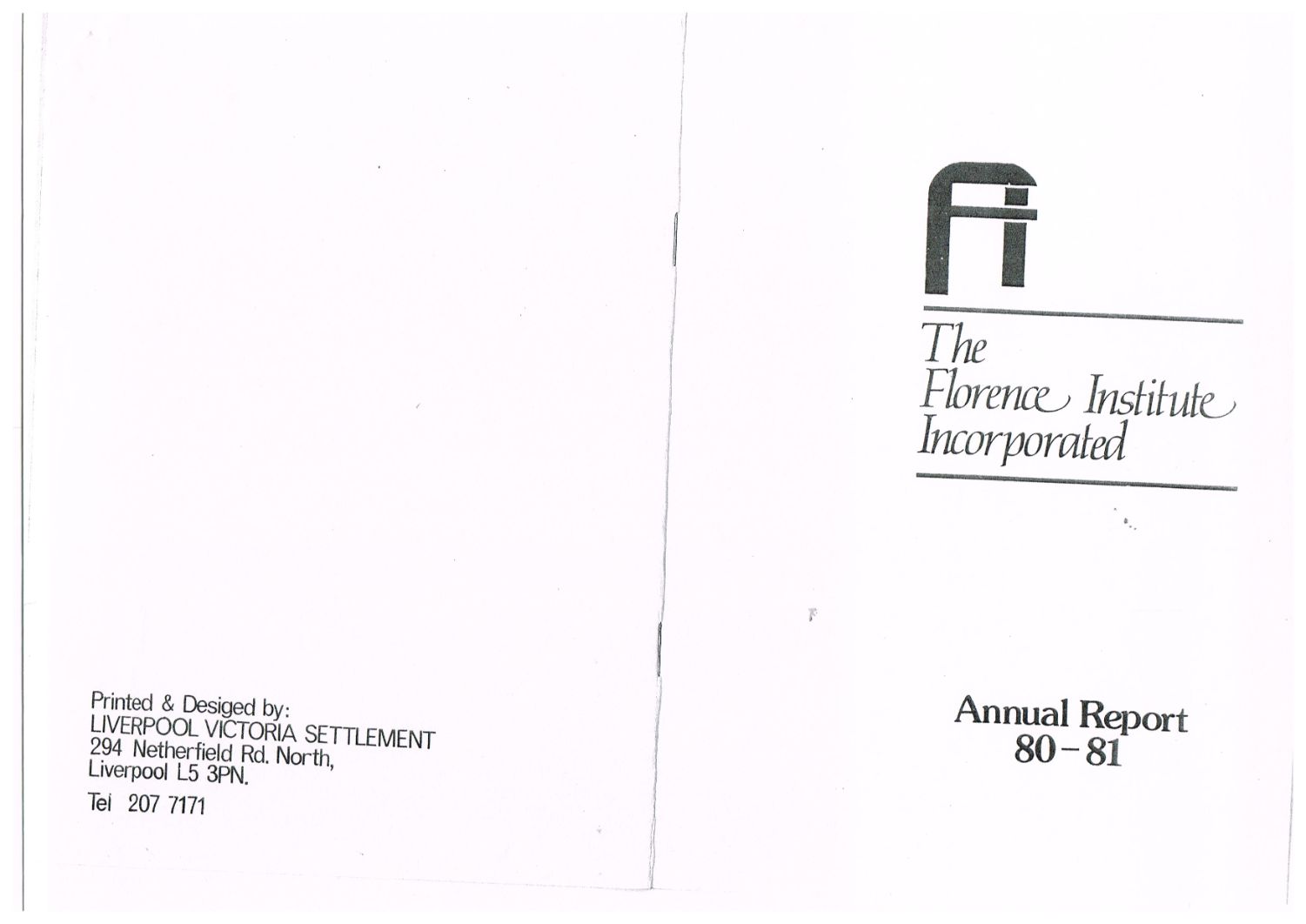
1980
Throughout its history, The Florrie’s activities programme developed in accordance with trends and demand. By the 1980s, the traditional menu of sport, football, netball, badminton, basketball and boxing was supplemented with classes in photography, textiles, Ju-Jitsu, weight lifting and needle crafts, among others. Also on offer were internal exchange programmes, employment activities, pensioner meetings, keep fit, summer play schemes and toddler groups.
In association with The Liverpool Domestic Mission, which was a member of The British Association of Settlements and Social Action Centres, the formation of The Florence Institute Incorporation marked a significant shift in the Florrie’s history. The report acknowledged its position in regard to the community and ‘complex forces in our society’, which necessitated ‘ a strong and relevant local resource to help them find things in life that are of value in a world that threatens to put them at the bottom of every pile.
The report posed the question ‘Can The Florrie really become such a resource’? and found its answer firstly in the creation of partnerships with other local and national agencies. Secondly, new structures and the implementation of a special sub-committee, under the chairmanship of Bob Harding, was initiated. His immediate priority was to ensure The Florrie’s Youth Leader, Bernie Jones, received the right backing to materialise his ideas effectively, with the involvement of the Youth Council. Thirdly was the need to address concerns about unemployment, which had already inspired a special Employment Initiatives Sub-Committee within the Institute, aided by the Manpower Service Commission, whose purpose was to create ‘real alternatives to the worthlessness of life on the dole’.
The newly formed Board of Management re appraised it role ‘as one of commitment to the local community, not simply to its membership. ’Thus, reconstruction work to the lower gymnasium facilitated a Youth Opportunities Programme ‘in order that we play our part in combatting the current insidious problem of youth unemployment’ and the position of Development Officer to act as ‘an ideas man’ was being created, The board looked forward to hearing ideas from catering and computers to plumbing and vehicle maintenance, and planned a horticultural project on the roof of Wellington Road School, which would expand into City Farm Scheme on the land around the Turner Home.
A desire to equip local residents to form their own groups, such as the excellent Morris Dancing Troup, was encouraged. Furthermore, The Florrie recognised its Sports Hall was a real asset to the whole community, but in order to flaunt this effectively a new marketing strategy was required.
Luncheon Clubs and Day Centres, where 2,500+ meals where served throughout the year, gave service to older residents; this was a tribute to the ethos that ‘young and old, using the same facilities come into friendly contact with each other.’
The Youth Warden reported that‘ the policy we have taken is to accept any local ‘youths’ NOT JUST BOYS. Although the Florence Institute is traditionally a boy’s club, the reason for this being, all local youths in the present day position of unemployment need a centre where they can participate in any activity which may benefit themselves even if it is just a social chat. The Florence Institute is prepared to help any youngster in Liverpool 8 in any way it possibly can.’
The diversification of the Institute’s reach was showcased: the Girls 5-a-side football team won their league and went on to represent Merseyside in the Regional Finals against Lancashire, Cumbria, Manchester and Cheshire, and an exchange programme in 1980 saw twenty Florrie children visit Hamburg, West Germany.
THE FLORENCE INSTITUTE
- 0151 728 2323
- info@theflorrie.org
- 377 Mill Street, L8 4RF
- We are open: 9am – 6pm Monday to Friday.
Registered Office: The Florence Institute Trust Ltd, 377 Mill Street, Liverpool L8 4RF. Charity Registration No: 1109301. Company Registration No: 05330850 (registered in England and Wales).
